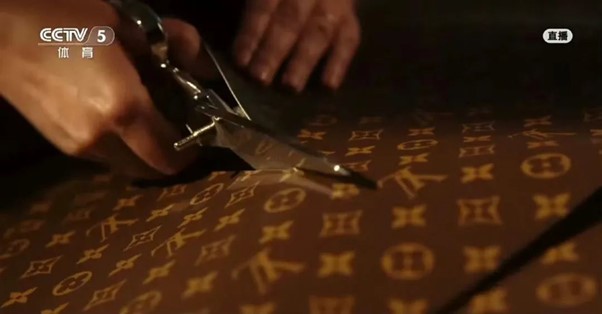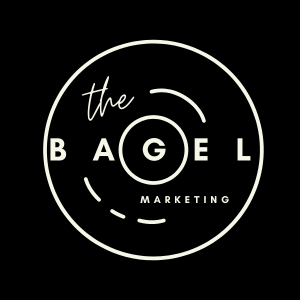The opening ceremony of the Paris Olympics featured numerous appearances of products from French luxury giant LVMH, including medal boxes and footage of factory production processes.
LVMH, a sponsor of the 2024 Paris Olympics, had previously committed to providing 150 million euros in sponsorship. Its brands Louis Vuitton, Berluti, CHAUMET, Moët Hennessy, and Sephora are supporting the Games, a topic that has gone viral on social media.
Creating the “Most Fashionable Olympics Ever”?
The Games have attracted 79 sponsors, with sponsorship revenue expected to reach a total of $1.3 billion. Sponsors are divided into two categories: global partners and national partners. Among the national partners, there are three sub-categories, with Accor Group, Orange, and LVMH among the seven premium partners. According to Le Parisien, the sponsorship revenue from these seven premium partners accounts for more than half of the domestic sponsorship revenue for the 2024 Paris Olympics.
From the start of the Olympic torch relay, the torch has been housed in a custom-made Louis Vuitton trunk. The relay route includes stops at LVMH’s Cheval Blanc hotel and the Louis Vuitton Foundation art museum in western Paris. The entire torch relay is sponsored by LVMH’s cosmetics retail brand Sephora.
The medal boxes are inspired by LV’s classic trunk design and feature brass corners and closures used on LV luggage since the 1850s. The box is divided into a central section and two wing-like sections, which open to reveal drawers designed to hold 468 medals.

The trunk designed to hold the torch also incorporates LV’s iconic Damier checkerboard pattern. Each trunk has circular “sockets” on the base and lid to securely hold the torch in place. The interior is lined with soft, matte black leather, which can be reversed to reveal the embossed 2024 Paris Olympics logo.
LVMH’s jewellery brand Chaumet designed the Olympic medals, each of which is embedded with a small piece of metal from the Eiffel Tower. The medals will be displayed in custom-made Louis Vuitton trunks.
The volunteer award ceremony uniforms are also provided by LV, featuring white polo shirts, berets, and beige trousers. The unisex, retro design harkens back to the style of the 1920s Paris Olympics. LV has designed a total of 600 uniforms for the 515 award ceremony volunteers.
LVMH’s suit brand Berluti created the opening ceremony uniforms for the French Olympic team.
Additionally, LVMH will host events for VIPs and top clients at venues such as the Louis Vuitton Foundation and the Cheval Blanc hotel, which overlooks the Seine River and offers a dedicated lounge for winning athletes.
Millions of bottles of Moët & Chandon champagne and Hennessy cognac, both LVMH brands, are being served at hospitality venues throughout the Olympic venues.

“The Paris Olympic Games will help to enhance France’s attractiveness around the world. It is only natural that LVMH and its brands are involved in this extraordinary international event,” said LVMH CEO Bernard Arnault when announcing the partnership last year.
LVMH CEO Bernard Arnault Tweet
Although LVMH has sponsored other sporting events, such as the FIFA Men’s World Cup and the Copa America, sponsoring the Olympics is unprecedented. Arnault added that while he doesn’t expect the Olympic sponsorship to have a significant impact on the group’s profits, LVMH’s involvement should “enhance the image of the group and its brands.”
Growth Has Slowed
Founded in 1987 by Bernard Arnault, LVMH owns over 50 brands, including Louis Vuitton, Guerlain, Dior, Celine, and Loewe. It is the world’s largest luxury goods group, with businesses spanning wine and spirits, fashion, beauty, fragrance, watches, and jewellery.
While sports marketing can bring significant value to brands, companies must also address the challenge of converting marketing-generated traffic into business growth.
According to financial reports, in the first half of 2024, LVMH Group’s sales revenue decreased by 1% year-on-year to 41.7 billion euros, with a 2% increase on an organic basis. Net profit decreased by 14% year-on-year to 7.267 billion euros. This performance fell short of expectations, with analysts forecasting sales revenue of 42.22 billion euros for the first half of the year.
LVMH attributed the decline to “the negative impact of exchange rate fluctuations on the fashion and leather goods business.” This business, which includes brands like Louis Vuitton, Dior, Celine, and Fendi, is LVMH’s largest revenue source. In the first half of 2024, it generated 20.77 billion euros in revenue, a 2% decrease year-on-year and below analysts’ expectations of 21.02 billion euros.
Since the beginning of 2024, LVMH’s organic growth in both quarters has been below expectations, with a further slowdown in the second quarter. In fact, LVMH’s growth rate has been slowing for nearly a year. In 2023, although LVMH’s revenue reached a record high, its annual revenue growth slowed to 8.8%, less than half of the growth rate in 2022.
Zhou Ting, director of the Yaoke Research Institute, believes that the slowdown in luxury brand performance is normal as consumer enthusiasm for luxury goods transitions from a peak to a stable period. Additionally, the rise of alternative markets, driven by increasingly personalised and diverse consumption patterns, is a significant factor affecting the sales of traditional luxury brands.
“Although LVMH Group has achieved growth on an organic basis, the 1% year-on-year decline in sales revenue may be related to intensified market competition worldwide,” added Jiang Han, a senior researcher at the Pangu Think Tank. “Other luxury brands are also actively competing for market share, posing competitive pressure on LVMH Group.”
Jiang Han, a senior researcher at the Pangu Think Tank Tweet
LVMH’s management believes that the current decline in performance is only temporary. In a statement accompanying the financial results, Bernard Arnault mentioned the impact of the economic and geopolitical environment on the company, saying: “The results for the first half of the year reflect LVMH’s remarkable resilience, thanks to the strength of our brands and the responsiveness of our teams in an uncertain economic and geopolitical environment. LVMH remains vigilant in the current environment while confidently looking forward to the second half of the year.”
